Can I get allergy from my eyeglasses ?
In America, almost 20 percent of the people complain about rash or allergy from eyeglasses frames. Almost 64 percent of the adult American wear their regular prescription glasses. The eyeglasses frame industry has also managed to align the designs of frames with new trends and latest fashions. Whether for vision correction, protection, or fashion one can have allergic reactions due to their eyeglasses frames.
Frame allergy and its symptoms
Allergic reactions to eyeglasses frames are typically contact allergies. This means that the skin reacts to a substance it comes into direct contact with. Symptoms of these allergies can include:
- Redness
- Irritation
- Itching
- Swelling
- Blistering- it occurs in severe cases
Allergy causing material in frames
Nickel
One of the most common allergens, nickel is often used in metal eyeglass frames. Even small amounts can cause a significant reaction in sensitive individuals. Nickel is frequently used because it is durable and affordable, but its potential to cause allergies makes it a problematic choice for many. In people wearing metal frames specifically frames of nickel and its alloys 10 percent of the people get allergic reactions.

Contact dermatitis
When nickel comes into contact with the skin, it can cause an immune response in sensitized individuals. This reaction is known as allergic contact dermatitis (ACD).
Understanding the mechanism
Eyeglasses frames that contain nickel are in constant contact with the skin, particularly around the nose, ears, and temples. Prolonged exposure increases the likelihood of nickel ions being released from the metal and penetrating the skin.
Plastic materials
Some types of plastic, especially those containing certain dyes or chemicals, can cause allergic reactions. Lower-quality plastics are more likely to cause such issues. Mostly plastics are hypo-allergic materials but their coatings and additives might contain allergens resulting in contact dermatitis.

Rubber and Silicone
Components like nose pads and temple tips made of rubber or latex can also trigger allergies in some people. Latex allergies are particularly common, and exposure can lead to severe reactions in sensitive individuals. The allergic reaction due to rubber and silicone nose pads can also occur as a result of improper fitting.

Best material for eyeglass frames
To avoid allergic reactions, opt for frames made from hypoallergenic materials. Here are some options that one should know while chosing the eyeglass frames.
In metal frames we have the following choices
Titanium
Titanium frames are lightweight, durable, and hypoallergenic. They are an excellent choice for individuals with sensitive skin. Titanium is resistant to corrosion and does not contain nickel, making it a top choice for allergy sufferers. Additionally, titanium frames are flexible, which enhances comfort and reduces the likelihood of pressure points on the skin.
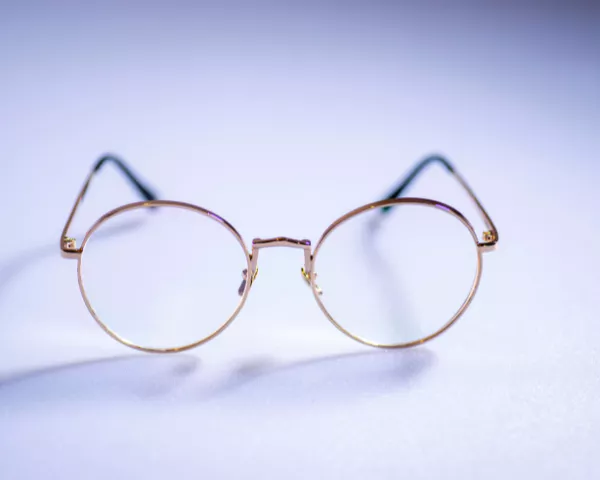
Stainless steel
High-quality stainless steel frames, especially those labeled as surgical-grade, are hypoallergenic and resistant to rust and corrosion. We need to ensure that the frames are nickel-free or have a protective coating to prevent nickel exposure. Stainless steel frames are also known for their strength and sleek appearance, making them a popular choice.
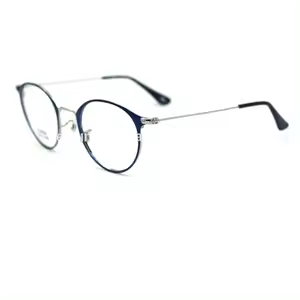
Aluminium
Aluminum frames are lightweight and generally hypoallergenic. However, ensure that the frames do not have nickel components, which could trigger an allergic reaction. Aluminum frames offer a modern, minimalist look and are highly durable.
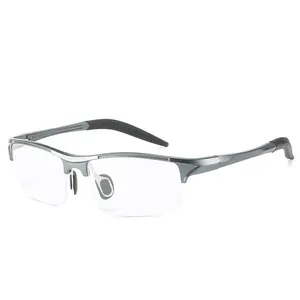
In plastic frames we have the following choices
Acetate
Acetate is a type of plastic derived from natural sources like cotton and wood fibers. It is hypoallergenic and often used in high-quality eyeglass frames. Acetate frames are also customizable, allowing for a comfortable fit. They come in a wide variety of colors and patterns, providing both style and functionality.
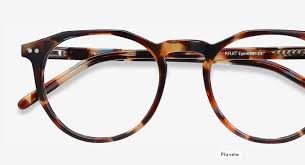
TR-90
TR-90 is a thermoplastic material that is lightweight, flexible, and hypoallergenic. Frames made from TR-90 are durable and comfortable, making them a great option for those prone to allergies. This material is also resistant to heat and chemicals.
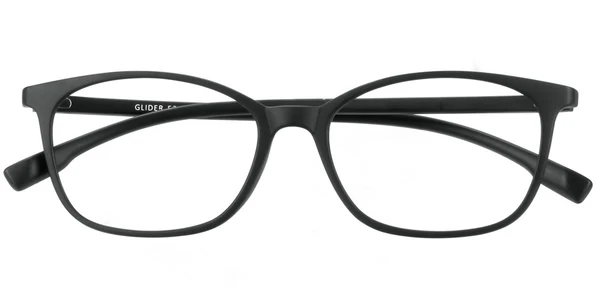
Wooden frames
Wooden frames are a unique and hypoallergenic option. They are natural, eco-friendly, and stylish. Ensure that the wood is treated with hypoallergenic coatings to prevent any reactions. Wooden frames can be a great conversation starter and are often handcrafted, adding a personal touch to your eyewear.
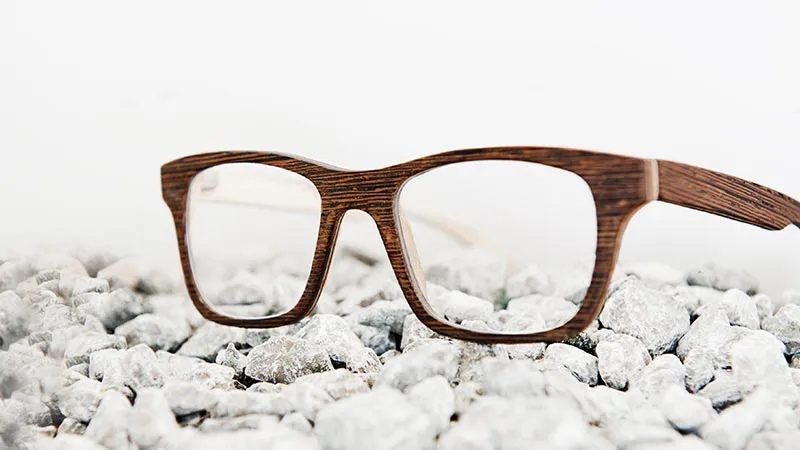
How to choose allergy free eyeglasses
Opt for nickel free
Look for frames labeled as nickel-free or hypoallergenic. This is crucial for avoiding one of the most common allergens in eyeglass frames.
Consult eyecare professional
Your optometrist can help you choose the best material for your frames based on your specific allergies and skin sensitivity. They can provide professional advice and may even recommend specific brands known for hypoallergenic options.
Check before buying
If possible, try wearing the frames for a short period to see if you experience any discomfort or allergic reactions. Some stores may allow you to test frames before making a final purchase.
Concern for protective coatings
Protective coatings can be applied to metal frames to create a barrier between your skin and the metal. These coatings can be clear or colored, depending on your preference.
Nose pads
Frames with adjustable nose pads made from hypoallergenic materials can enhance comfort and reduce the risk of allergic reactions.
How to maintain my allergy free eyeglasses
Here are some tips for keeping the eyeglasses clean and allergy-free:
- Clean the frames regularly with a mild soap and water solution. Avoid harsh chemicals that can irritate your skin or damage the frames. Make sure to rinse thoroughly and dry with a soft cloth.
- Check your frames periodically for any signs of wear and tear, especially around the nose pads and temples. Replace any worn components to prevent irritation.
- Sharing your glasses can transfer allergens from one person to another. Keep your eyewear personal to avoid potential reactions.
- When not in use, store your eyeglasses in a protective case to prevent damage and exposure to dust and allergens.

How to differentiate between allergies due to frames and allergic conjunctivitis?
In case of allergic reactins, itching and watering are common symptoms alonwith other mild to severe reaction and we need to get our eyes checked in mild reactions as it is likely to happen that the allergy is not due to frames but it can be allergic form of cojunctivitis. Your eyecare professional can diagnose and differentiate this through proper slit lamp examination.
By selecting the right frames and consulting with our optometrist, we can enjoy clear vision without the worry of allergies.
Founder of EyesMatterMost- an optometry student who loves talking about eyes. I tend to cover topics related to optometry, ophthalmology, eye health, eyecare, eye cosmetics and everything in between. This website is a medium to educate my readers everything related to eyes.

